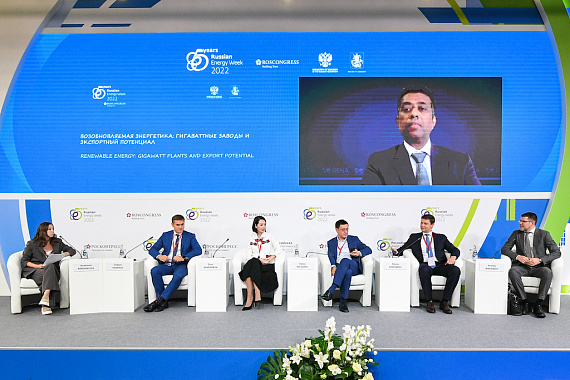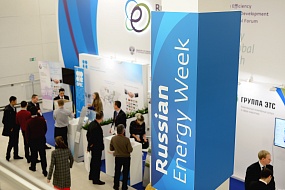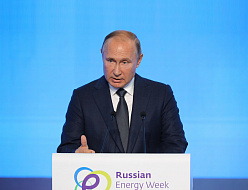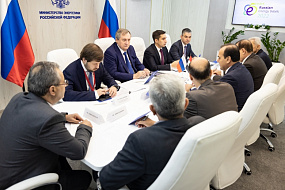REW 2022 Session Addresses Future of Renewable Energy in Russia

Participants in the session ‘Renewable Energy: Gigawatt Plants and Export Potential’ at the Russian Energy Week 2022 International Forum discussed Russia’s export potential for renewable energy, taking into account the current geopolitical situation, as well as the support measures that the industry needs. The session was organized by the Russian Energy Agency of the Russian Ministry of Energy and the Roscongress Foundation with the support of the Russian Ministry of Energy.
Over the past 10 years, renewable energy facilities around the world have increased their installed capacity by 17 times. In Russia, this industry started down this path relatively re-cently and is now actively gaining technological potential, which will eventually enable the country to produce equipment that is in demand worldwide.
Several renewable energy facilities have been built from the ground up as part of the first phase of the renewable energy capacity delivery agreement programme. The main achieve-ment has been the transition from small production volumes to gigawatt plants, which result-ed from the introduction of industry support measures, said Anastasia Berdnikova, Executive Secretary of the Association of Solar Energy Enterprises.
“Renewable energy is developing rapidly on foreign markets, and contracts for its sup-ply have been signed for years in advance. To become competitive on export markets, Russia must provide the necessary volumes, primarily on the domestic [market],” Berdnikova said.
As a result of the implementation of the renewable energy capacity delivery agreement programme, the Russian Ministry of Energy has determined the pace at which renewable en-ergy facilities built in the country should be localized. In cases where investors meet specific conditions, they compensate their costs with a guaranteed return, which no other market can guarantee, said Andrey Maximov, Director of the Electricity Development Department of the Russian Ministry of Energy.
“Practice shows that the path we have chosen is the correct one: investors are interested, and we have localized production. As part of the RES 2.0 programme, the Ministry of Ener-gy has tried to take into account global trends, for example, there were requirements related to export as a necessary component. Our products should be exported as high value added products. The renewable energy capacity delivery agreement programme 2.0 is a long-term programme calculated until 2035, and it will function based on the growth rate in renewable energy,” Maximov said.
Grigory Nazarov, General Director of NovaWind (Rosatom), noted that if Russian com-panies are producing equipment and spare parts for renewable energy, it becomes much easi-er to regulate the production cycle.
World practice shows that local plants with small volumes have greater advantages, in particular, it is easier for them to transition to constantly emerging new technologies, said Zoya Sandzheyeva, General Director of the Hevel plant.
“Thanks to the first renewable energy capacity delivery agreement programme, we have tripled capacity and repeatedly modernized production in order to produce high-tech prod-ucts. Overall, today Russian solar energy can fully supply the domestic market,” San-dzheyeva said.
Binu Parthan, Head of Regions at the International Renewable Energy Agency (IRE-NA), wrapped up the meeting with a speech online. He spoke about the global prospects for the transition to renewable energy.
“The whole world is actively switching to renewable energy sources. Electrification will depend on the development of this industry, and it is essential to move forward in these areas regardless of the geopolitical situation. In addition, investors are interested in renewable en-ergy, which may be of interest to the Russian economy, in particular,” Parthan said.





